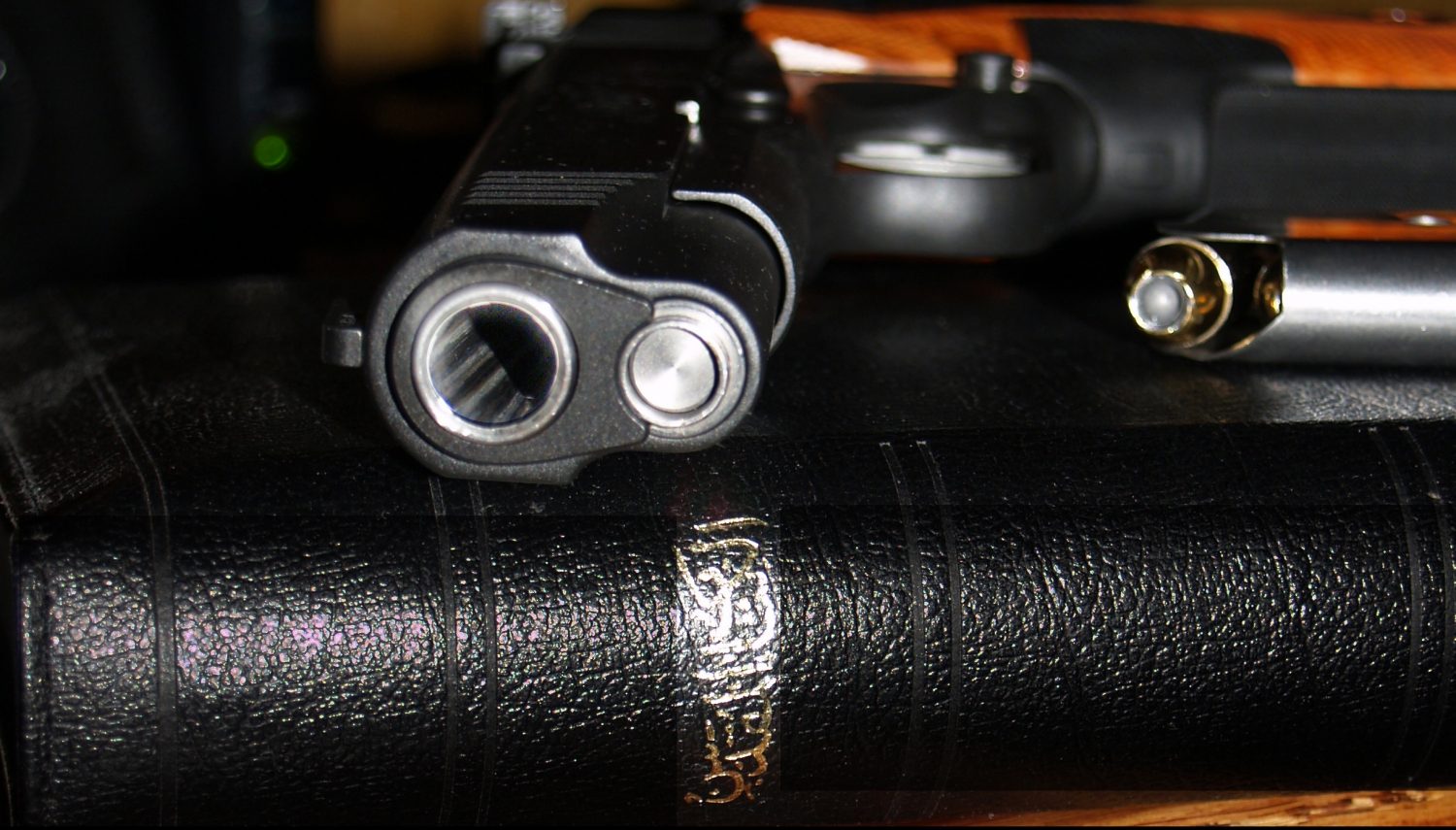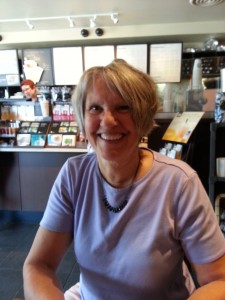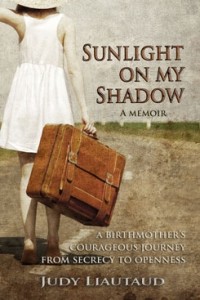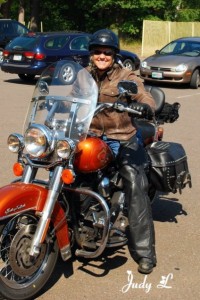When I first started working in the voice over world a local children’s book author hired me to do the work on her interactive software. Entitled “Times Tables The Fun Way!” it was not only the best paying job I had that year, or the next, but also it forced me to do over twenty different voices for the work. I still love going to her website (www.citycreek.com) and listening to the samples. She made me a much better voice over talent with her kindness and expectations.
It is with pleasure that I present an interview with the author of Sunlight On My Shadow: A Birth Mother’s Journey From Secrecy to Renewal, Finding A Way to Heal From Shame and Regret, Ms. Judy Liautaud.
A little preface is in order. The book is not for children. And there are some frank words about intimate relations in the book. I happen to think that they were vital to the story line. But it’s not something I’d give to my 8 year old nephew as a summer read. This is an excellent book for adults interested in the topic of a birth mother searching for the child she gave up for adoption in the late 1960s. Judy’s own description of the book is: “Suitable for adults and teens – with parental guidance.” I agree. But if you wear your “big girl/boy pants” you’ll be just fine. And, I honestly believe, much better after reading the book. I loved it.
Please follow me on Twitter, and “Like” the Facebook author page.
First, a few promotional materials are available at www.sunlightonmyshadow.com. You’ll find a book trailer, a book description, and some pictures of Judy. But what you won’t find is a picture of her riding her Harley Davidson. I’ve seen her roll up to my house on it, so I know it’s not just a publicity shot.
Judy, you started your search for the daughter you gave up for adoption in the pre-internet era. Do you think your search would be easier today?
“I can’t say if it would change today. I only had the birth time and that was it. The original birth records were sealed and put in a vault – my name and the father’s name never appeared on the birth certificate. It didn’t even say that the baby was adopted on the new birth certificate they issued.”
How do feel about that level of confidentiality and isolation in terms of the adopted child knowing their past?
“I think it’s horrible. It was done to protect me as the birth mother because it was so shameful in the sixties. And, also to protect the adoptive parents in case I wanted to come back and steal the baby away or something. But it is ridiculous. I think it’s really important for people who are adopted to connect with their roots and know their genetic and medical history – there are so many questions. I think open adoption would be a better scenario and it is done more often today.”
What advice would you have for a 16 year old girl who found herself pregnant this afternoon. Especially in light of all the changes in the last 40 years and the change with regard to people’s opinion of birth outside of wedlock?
“You know, it’s hard to give advice. It’s a really hard question, because there’s no good solution to teen pregnancy: assuming the 16 year old girl accidentally got pregnant. If she did it on purpose, it’s a joy. I could never give advice. One thing I would say is that it would be really good to not be afraid to explore all options. If she’s thinking about abortion, talk to people who have had abortions. If she’s thinking about giving her baby up for adoption, talk to others who have done it. There’s no way you can know what it’s going to be like – it’s such a hard decision. It’s horrific.”
“My whole, at that time, my whole objective was to get out of this without anyone knowing about it. Keep in mind, I was going to an all girl Catholic school, and sex wasn’t even talked about except that it was a mortal sin outside of marriage. I didn’t make an informed choice. I didn’t feel like I had any options, I just stuck my head in the sand and tried to pretend it would go away.”
“I felt powerless about the whole thing.”
You mentioned a couple of times in your book that you felt that the Roman Catholic Church taught a lot of shame and guilt, there wasn’t a lot of acceptance of wayward girls. You’d left the church effectively at that point and never gone back. Are you a person of faith now? Do you attend church?
“I don’t attend church. I would call myself a spiritual person. I don’t go to any organized church.”
You say in the book that you ended up being glad that you didn’t have an abortion. Later on when you became a midwife you were there to bring people into the world. How do you stand on the abortion issue now?
“You know, in my situation, when I was a young girl of 16 and pregnant, if there was any way that I could have gotten out of it, I would have taken it. But that wasn’t an option. By the time my father suggested it I knew it was horribly wrong. Because I was feeling the baby kick and move inside me. Today, I respect a woman’s choice. I’m so glad that I never had an abortion. There’s a lot of pain about abortion and I don’t think it is ever taken lightly. But I can’t get on a pro-life bandwagon because I still believe it’s a personal choice. Because you never know what path that woman needs to take.”
As an aside, from what I’ve read, and people I know who’ve had abortions, seem to regret it terribly in later years.
“Yeah, it’s a painful thing. It’s similar to my experience in that it’s a loss and a grief and to know that you made that choice has got to be a really heavy decision to live with for many women.”
We talked a bit about the pain of abortion, and my perception that it was a pretty wide spread phenomenon that women had deep regret and angst for many years about having had abortions. Judy provided some insight about her recent interactions with people after writing her book when it comes to the topic of abortion.
“As a result of my book, people share amazing stories with me. [Recently] someone… said to me, “You know, I can’t really read your book because I’m ashamed to say it, but I made a different choice and I had an abortion when I was in my twenties.”
“And this person never had any children. She is much older now, and still feels deep regret. I just wonder if the abortion had an impact on her choice not to have children. I could see the sorrow in her eyes, maybe 40 years later. And that saddens me. It’d be hard to resolve – but I think there is always a way to forgive yourself.”
I said, “From my standpoint, as a Christian, I think God forgives everything if you just ask, and I’ve felt very strongly about that. I’ve got this list, Judy, that’s like 95-96 pages long, single-spaced, 2-point type that I need to be forgiven for. And if there wasn’t that hope that being open and honest with God wouldn’t get me off the hook, I’d be smoking crack and doing whatever I could, because I’ve pretty much doomed myself if that’s not the case.”
That drew a laugh. But for me, that salvation is they key to my sanity.
I think that’s the greatest part of the Christian faith is that it gives you that opportunity for resolution and forgiveness.
“You know, I think that writing is helpful in healing that way, too. Because you get in touch with that pain and that person at the time and it helps you find forgiveness. I think writing is an amazing tool for that.”
Do you think the adoption, and the events surround it, strengthened your bond with your other children?
“Yeah! When my first baby was born I wouldn’t let her out of my sight. I was almost dysfunctional. And, so, I think the preciousness of my children was reinforced.”
I know you are working on a new website to help people connect with their birth parents if they were adopted. What’s it called?
“Cafeconnect.com. (http://www.cafeconnect.com) It’s up, I just finished it.”
The purpose of the site is to let birth parents get in touch with the children they gave up for adoption and vice versa, correct?
“Exactly. In a non-threatening way. It’s a mutual consent registry. So, when both are registered we’ll put them together. It’s kind of a shot in the dark but if you believe in serendipity and that there’s “A time and a season for all things…”
Going to the writing side of it, have you ever written a novel before? Because that’s how this read. As opposed to a biography.
“No, this is my first book.”
Are you going to write more?
“I’d love to. I love to write, I love to write fiction. I think it would be really fun.”
Do you have any more ideas for books?
“I have a fleeting idea…” [And that’s all I’ll say, because the idea is great and I’m not going to blow her shot at a really intriguing novel.]
What was the hardest part of telling this story and putting it into book form?
“I never worried about the whole world knowing, because that’s why I was writing it. I think the hardest part was writing, writing, writing and looking back and saying, “This is crap. I mean, why does anybody want to read this stuff? It’s so dark.” And so it was the down days when I questioned the task of writing. That was the hardest part – climbing the hill when I was in the valley.You know, “Writers Doubt.”
Did you find that when you were writing you became completely lost in time and space and you’d find yourself back in 1968 or 1981 and you were in that moment. And that your fingers were just putting down your brain on paper?
“Exactly. That’s a good way to describe it. And tears. While I was writing tears would just flow. And I’d write and write and write. It took me a while to get in touch with that raw space. I’d start writing stuff that didn’t have anything to do with my story. Just childhood cute little anecdotes. And, finally, after a while, I could get to that real place that mattered and afterwards I’d feel so happy. Because I I could feel myself getting in touch with that teen child.”
Who did your editing?
“Lots of family members. And then I finally hired a copy editor.”
Did you do your own formatting for Kindle?
“I tried to learn myself. It was very complicated. So I just gave it away… I highly recommend “Vook” [http://www.vook.com] – I even found some changes after they’d finished and they let me do that.”
When I asked her about critique groups she said it was an uplifting experience.
“The Saint Croix writers group in Solon Springs, Wisconsin gave me so much encouragement. They’re positive. The negative stuff, you figure that out for yourself! Mostly what I needed was encouragement.”
“The format lets you read out loud and then get comments. REading out loud to a group of people helps you get in tune with your writing.”
Judy, I really loved the book. My review on Amazon says it all. Who did the cover art?
“I did it. I purchased the photo and designed the layout and type. I love doing graphic design.”
Multi-talented – she writes the book and designed her own covers.
If you’d like to get an autographed copy of Judy’s book, you can click on this link. Just make sure you mention in the comments section of the order form that you read about the book here at www.commotioninthepews.com. There’s space to leave the inscription you desire. Only people who mention this blog will get the inscribed copy. Judy’s doing that for us as a special deal.
And, if you’d like to read the book on Kindle, the link is right here.
Itunes users can get the book by clicking this link.
My thanks to Judy for taking the time to sit down and talk with me for this interview. Grab a copy of the book, it’s very well written and opens a window in time that most of us have forgotten. If you’d like to meet Judy, she’ll be doing a book reading at Subtext Books in Saint Paul on August 1st at 7pm. She’d be delighted to see you there.




Pingback: Sunlight on My Shadow – Interview with Joseph Courtemanche